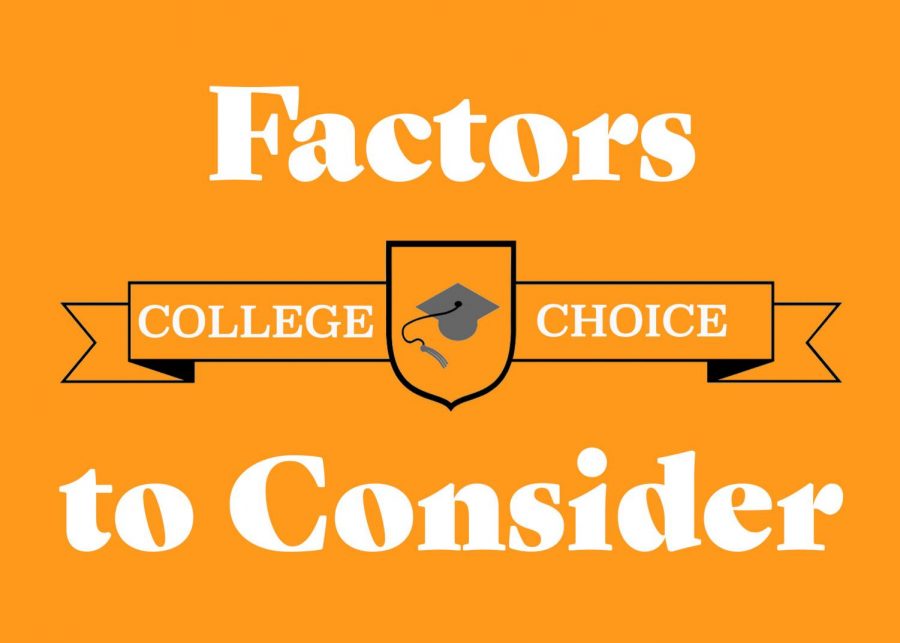How to pick the perfect college
Pros, cons and everything in between
November 28, 2018
Chaotic and stressful, the choice of which college to attend is a daunting one. But when picking the place to spend the next chapter of life, fear should not be the primary emotion. Sit back, relax, make a couple of pros and cons lists, and get excited about the future.
Maybe someone does not have a definitive top three colleges. Maybe they do not have any idea of where they want to go. Maybe they were raised by wolves in the jungle and did not know what college was until today. No matter the case — the first step is research. There are endless criteria that can be used to narrow down colleges, and how much these criteria matter will vary for each individual. The important thing is to make sure to base the choice on one’s own interests and no one else’s.
Budget:
Apply for as many scholarships as possible, but do not automatically expect to get them. A $60,000 degree from an Ivy League school might not be worth it to some. They might decide to opt for in-state tuition or a killer scholarship rather than the cost of student loans. Maybe, for one’s dream career, a degree from a prestigious university is worth it. It is all about knowing what one is willing to pay and what one is able to pay. The US Department of Education’s net price calculator consolidates the financial information from hundreds of colleges into one simple, easy-to-search site. Factoring in a budget when choosing a college is a crucial step in making sure one gets the best bang for their buck.
Majors:
If someone is lucky enough to know what they want to major in, they should use that to their advantage, such as finding the schools that will give them the best advantage in their chosen field of study. Some schools offer internships in their areas of specialty to give students a hands-on experience in their desired profession. For those that have not decided on a major, picking a vague category of interest and finding schools which cater to that particular interest can be helpful. This process can be challenging. One might have their heart set on a liberal arts school, but know at the same time that they want to become a doctor. This does not mean they need to abandon the possibility of attending this school completely, but their future should be kept in mind.
Student Life:
This simple phrase is a lot more important than it seems. Student life, as it hints, consists of student life, which includes class size, faculty to student ratio, dorm rooms, campus organizations, meal plans, greek life, and much more. An important factor in making the college choice is to consider the type of school environment that is most ideal and compare that to one’s top choices. Reaching out to alumni and current students and asking about their experiences also helps to get a more personal feel for the campus.
Acceptance Requirements:
Acronyms are the dictators of this category. From ACT to SAT, FAFSA to GPA, scores and qualifications can be a big factor in college choice. One should know their strengths and weaknesses and what kind of competition they can handle. Pick a school that feels comfortable but still challenging.
Setting:
One must consider several things about themselves: do they get homesick? Do they prefer big cities or small towns? What type of place would they love to live in? All of these questions are crucial to know what type of college setting would be most enjoyable. This place will become home, so it is important to make sure it feels like it. If one’s plan is to go far away for college, make sure to visit and tour ahead of time, so one knows what to expect.
Ultimately, choosing a college is an amalgamation of a thousand little things, and which factors matter most varies from person to person. Using resources can be a great advantage. Texas High students have access to a Naviance account — which students can log into with their school email. This website features many college choice resources, including College Smart Search, which allows one to enter criteria and narrow down which schools could match them best. Talk to trusted adults and academic advisers. Do not stress out too much. If a student picks a college that they are excited about, the next chapter of their lives could be the best yet.

